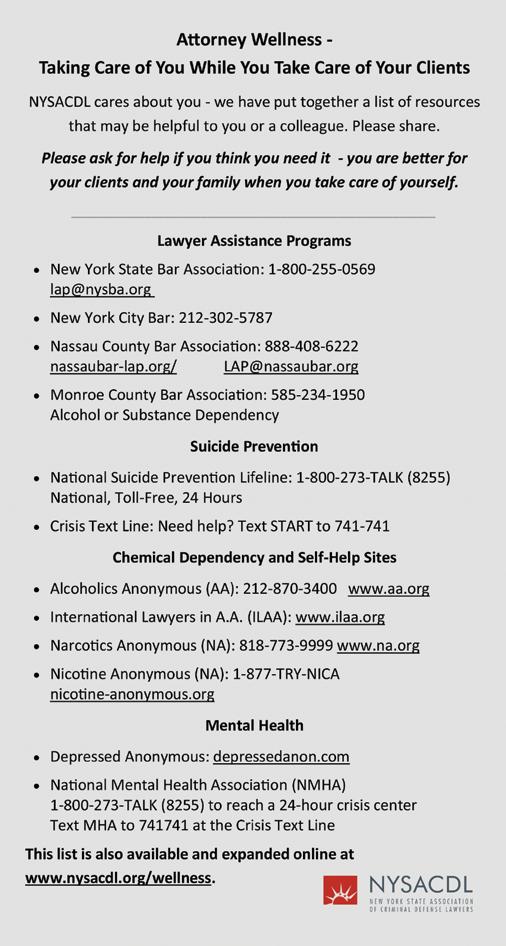Reducing One Aspect of the Pernicious Impact of Recordings of Interrogations:
POLICE STATEMENTS OF OPINIONS AND LIES By Brian Shiffrin, Esq.
I. Recordings of Interrogations Provide the Best Objective Evidence as to What the Defendant Said During the Interrogation and Whether the Defendant’s Statements Were Voluntary Brian Shiffrin is a member of the firm Easton Thompson Kasperek Shiffrin LLP. From 1981 to 2008, Mr. Shiffrin served as the attorney in charge of the Monroe County Public Defender’s Appeals Bureau. He has argued appeals and post-conviction motions and proceedings in numerous courts, including the New York Court of Appeals, the Second Circuit, and United States Supreme Court. Mr. Shiffrin has twice served as Chair of the Criminal Justice Section of the Monroe County Bar Association and is the co-author of the chapter on Appeals in Criminal Cases in the New York Bar Association’s Criminal Practice Handbook.
A series of exonerations of wrongfully convicted and other cases in which there have been contemporaneous recordings of police encounters have established that police lie. Stories of police falsification are so pervasive that the moniker “testilying” has developed to describe the practice of police giving false testimony. (See I. Bennett Capers, Crime, Legitimacy, and Testilying, 83 Ind. L.J. 835, 836 [2008] [noting that, in New York, a commission founded to investigate police corruption found that perjury was “so common in certain precincts that it has spawned its own word: ‘testilying’”]; Christopher Slobogin, Testilying: Police Perjury and What to Do About It, 67 U Colo L Rev 1037, 1044 [1996]; Donald A. Dripps, Police, Plus Perjury, Equals Polygraphy, 86 J Crim L & Criminology 693, 698 [1996]). Sadly, but not unexpectedly, the relationship between police perjury and wrongful convictions has been well documented (see generally, Russell D. Covey, Police Misconduct as a Cause of Wrongful Convictions, 90 Wash U L Rev [2013]). Not only has it been established that police commit perjury in testifying about police interrogations and that such perjury has led to wrongful conviction of innocent Continued on next page
Atticus | Volume 33 Number 1 | Winter 2021 | New York State Association of Criminal Defense Lawyers
39





